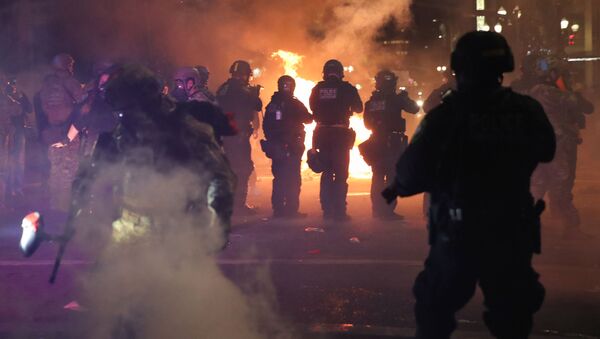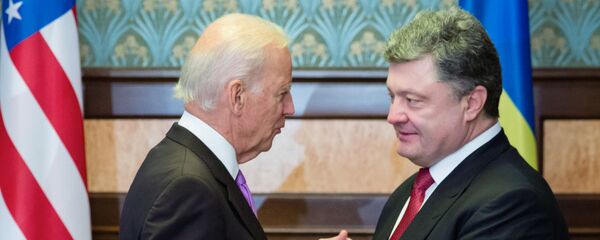Russia “seeks to sow divisions and create chaos across America and other democratic societies,” the official Twitter account of the White House National Security Council has alleged in a tweet announcing new US sanctions against four “Russia-linked individuals.”
Russia seeks to sow divisions and create chaos across America and other democratic societies. Today, the Administration utilized EO13848 to designate four Russia-linked individuals for attempting to influence the U.S. electoral process. https://t.co/jnDCMiexby
— NSC (@WHNSC) September 11, 2020
On Thursday, the Treasury’s Office of Foreign Assets Control announced restrictions on four “Russia-linked” persons, accusing them of “attempting to influence the US electoral process,” and charging Moscow with using “a variety of proxies to attempt to sow discord between political parties and drive internal divisions to influence voters as part of [its] broader efforts to undermine democratic countries and institutions.”
The sanctions’ main target is Andrii Derkach, the Ukrainian lawmaker who released audio recordings in May purportedly featuring conversations between former Ukrainian President Petro Poroshenko and former Vice President Joe Biden, and revealing the extent to which Biden sought to pressure Kiev to fire a prosecutor investigating a Ukrainian gas company his son was working for.
The Treasury describes Derkach as “an active Russian agent” who “has directly or indirectly engaged in, sponsored, concealed or otherwise been complicit in foreign interference in an attempt to undermine the upcoming 2020 US election.”
Curiously, the Treasury also accuses Derkatch of targeting “pro-Russian lobbyists in the United States” whom it said were “used to propagate his claims.” It’s not clear which “pro-Russian lobbyists” the Treasury is referring to, but President Donald Trump retweeted audio of one of the conversations between Poroshenko and Biden last month.
The Russian Foreign Ministry commented on the new designations Friday, with ministry spokeswoman Maria Zakharova lamenting that the US seemed to be determined to make even a semblance of normal relations between the two countries impossible.
Stressing that Russia did not, does not and will not interfere in elections in other countries, Zakharova suggested that even “the already ghostly prospect of at least a relative stabilization of bilateral relations is becoming increasingly distant.”
Last month, National Counterintelligence and Security Center director Bill Evanina accused Russia, China and Iran of trying to meddle in the 2020 election, with Russia alleged to be “using a range of measures primarily to denigrate former Vice President Biden and what it sees as an anti-Russia ‘establishment’.”
Moscow hit back against the restrictions in July 2017, ordering over 750 US diplomatic staff to leave Russia. The US called the move “regrettable and uncalled for.”
Despite over five years of ‘Russian meddling claims’, Washington has yet to provide Moscow or the American people with any substantive proof of its alleged meddling activities. In April 2019, investigators led by Special Counsel Robert Mueller found no evidence whatsoever of any collusion between the Trump campaign and Russia in 2016. Similarly, probes by Google, Facebook and Twitter have found little evidence of any systematic online Russian interference during the last election cycle.
Whenever Russiagate peddlers are confronted w/ the actual facts, it doesn't go so well. Here's @RepJerryNadler asking Google CEO Sundar Pichai about "the full extent" of Russian meddling activity on its platforms in 2016. The answer: Russian-linked accounts spent $4,700 on ads. pic.twitter.com/MiZaq8HBvS
— Aaron Maté (@aaronjmate) December 11, 2018






